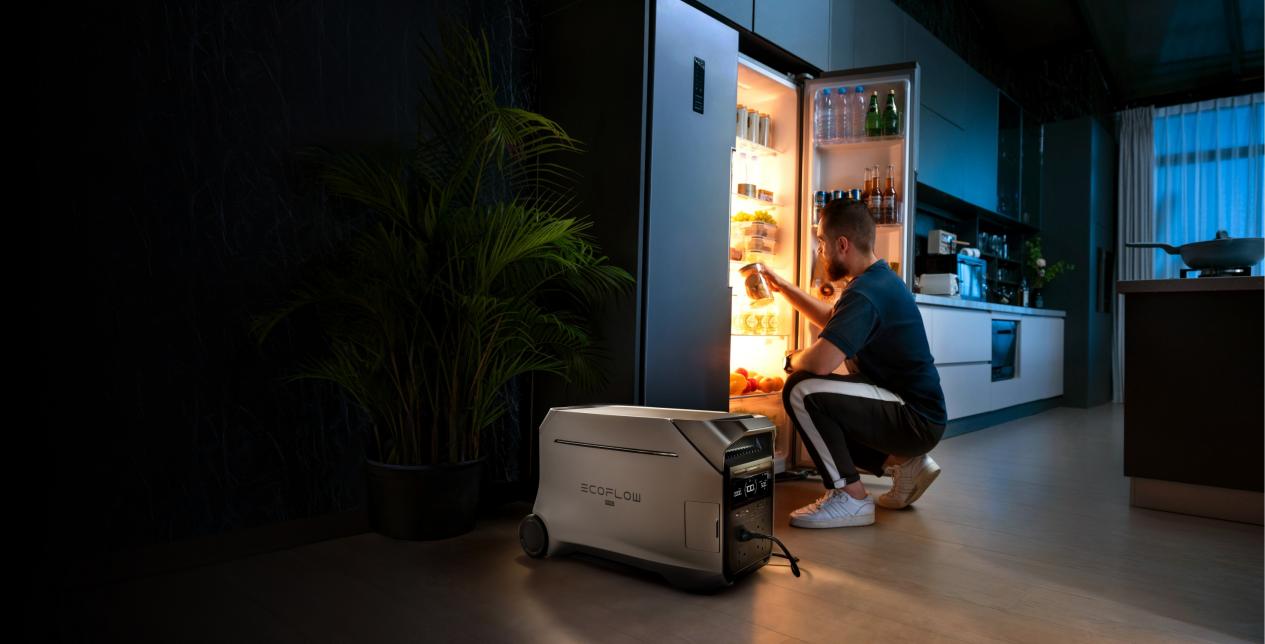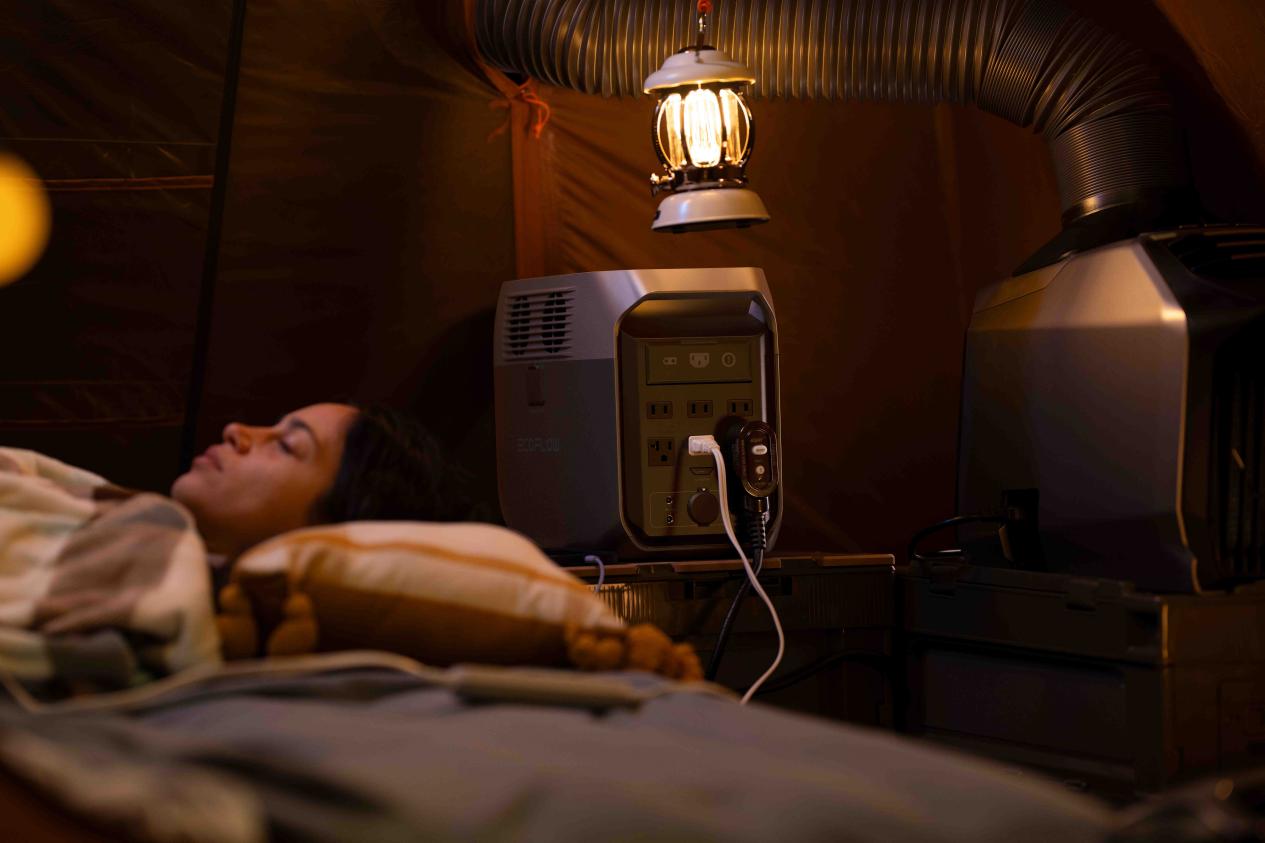Phoenix Heatwave Tragedy: Life-Saving Solar Backup Power When Air Conditioning Fails
In 2023, Maricopa County, Arizona, reported that 645 people died from heat-related causes. The most important fact from that report wasn't the record-breaking number. It was this: of the people who died indoors in a home with an air conditioner, 70% of those AC units were not working.
The problem often isn't the air conditioner itself. It's the electricity needed to run it. During an extreme heatwave, the power grid is the first thing to fail, leaving people trapped in homes that quickly become dangerously hot.
Why a Power Outage During a Heatwave is a Serious Threat
Your Home Can Quickly Become an Oven
Without AC, your house traps heat, and the temperature inside can quickly climb higher than it is outside. This intense heat puts your body under enormous stress. It can lead to life-threatening conditions like heatstroke. If you have children, elderly family members, or anyone with a health condition at home, the danger to them is even greater.
Your Power Is More Likely to Fail
This happens because during a heatwave, you and everyone else in your city are running your air conditioners at the same time. This creates a huge electricity demand that can overload the power grid. When the grid gets pushed too hard, equipment can fail, leaving your home in a blackout that could last for hours or days.
Your Food Supply Becomes Unsafe
When the power cuts out, your refrigerator and freezer stop working. According to the CDC, food in a fridge can become unsafe in as little as four hours. This means you could lose hundreds of dollars' worth of groceries. More importantly, you risk getting sick from spoiled food during an already stressful emergency.
Your Medical and Communication Devices Will Die
A power outage also cuts you off from your lifelines. You can't charge your phone, which you need for emergency alerts and to call for help. If you or someone in your home relies on powered equipment, like a nebulizer or oxygen concentrator, the situation becomes critical the moment the power is gone.


How a Solar Battery Backup Keeps Your Air Conditioner Running
First, it stores a large amount of solar energy in a battery.
Your solar panels turn sunlight into electricity, which is then saved in your battery unit. This gives you a personal reserve of power, making you independent from the electrical grid. This process happens continuously whenever the sun is out, keeping your battery charged and ready to be used at a moment's notice, day or night. You have your own personal power plant, ready for any outage.
Second, it converts stored energy into the right type of power for your home.
The battery stores electricity as DC power, but your appliances are built to use AC power from a wall outlet. An internal component called an inverter automatically changes the battery’s DC power into the AC power your house needs. This happens instantly and seamlessly.
Finally, it delivers a powerful surge of electricity.
Your air conditioner’s motor needs a huge jolt of energy to start up. A powerful solar battery backup system for the home is specifically engineered to provide this strong initial surge. This is the key feature that separates a robust home backup system from a small portable charger. After delivering the surge, the system supplies the steady, lower amount of power needed to keep your AC running smoothly.
Choosing a Backup Power Plan: Gas vs. Solar Battery
Having a backup power plan is critical. For a long time, the only real option was a gas generator. Today, there's a better way.
The Old Choice: Gas Generators
Using a gas generator during an emergency is a complicated and risky task.
You expose your family to serious danger. The biggest risk is deadly carbon monoxide (CO) gas from the engine's exhaust. You absolutely cannot run a generator inside your home or garage—you have to place it at least 20 feet away from your house. This means you'll be running extension cords back and forth, and you'll have to refuel it outside, even in bad weather.
The noise is constant and loud. A typical gas generator is about as loud as a lawnmower running right outside your window. This constant noise makes it hard to sleep, listen to news updates, or have a sense of peace during a stressful time.
You have to find and store fuel. Before a storm, you'll face long lines at the gas station. During a widespread outage, gas stations may not even have power to pump fuel. You also have to safely store gasoline at home, which is a fire hazard. On top of that, you have to perform regular maintenance, like oil changes, just to make sure it will start when you actually need it.
The Modern Choice: A Solar Battery Backup System
A solar battery backup system is designed for safety and simplicity, giving you power without the hassle.
You can use it safely inside your home. A solar backup battery produces no fumes and is completely silent. You can place it in your kitchen to run your refrigerator, in your living room to watch TV, or in a bedroom to power a medical device. There's no dangerous exhaust to worry about.
It runs silently and keeps your home peaceful. You get the power you need without the constant, loud engine noise. Your family can sleep soundly, and your home remains a calm, quiet space.
You get free, renewable fuel from the sun. Instead of storing gas, you use solar panels to recharge your battery during the day. This means that even in a multi-day outage, you can keep generating your own power.
It's incredibly easy to use. There's no engine, no oil, and no pull-cord to start. You just press a button and plug your appliances in, just like you would with a wall outlet. Some home energy storage systems even connect to your house's wiring and switch on automatically the second the power goes out, so you might not even notice the grid is down.


How to Pick the Right System for Your Home
To figure out what you need, you have to know what your appliances use. Look for two numbers:
- Running Watts: The power an appliance needs to stay on.
- Starting Watts: The quick burst of power an appliance needs to turn on. An AC or fridge needs a big jolt to get started.
Your solar battery backup system has to supply enough running watts for everything you want to power at once. It also needs to handle the highest starting watts from one of your appliances.
A Simple Plan to Find Your Number:
- List your must-have appliances: Refrigerator, window AC, fan, medical device, etc.
- Find their wattage: Check the sticker on the back of the device or search for it online.
- Add it up: Add the running watts of everything on your list. This is the minimum continuous power you need. Make sure the system can also handle the highest single starting watts.
| Appliance | Average Running Watts | Average Starting Watts |
| Refrigerator | 700W | 2000W |
| Window AC (10,000 BTU) | 1200W | 1800W |
| Portable AC | 1000W | 1500W |
| Box Fan | 100W | 150W |
| CPAP Machine | 60W | 100W |
For example: To run a fridge (700W) and a window AC (1200W), you need 1900W of running power. The fridge needs 2000W to start. So, you need a system that provides at least 1900W continuously and can surge to at least 2000W.
Having a Reliable Power Source Ready
Most backup batteries can't run your air conditioner when the power goes out during a heat wave, which is the one thing you need most. The problem is simple. It takes a lot of power to turn on an air conditioner and even more to keep it going for hours. That much power can't come from small backup batteries.
But The EcoFlow DELTA 3 Ultra Plus Can
This device gives you 3,600 watts of power all the time, and when your AC motor starts, it goes up to 7,200 watts. It's not just a fan or a small window unit; that's real AC power. You can keep your fridge, lights and fans running while also running a central air conditioner or a big window unit.
The 3kWh battery will keep you cool for hours. If you expand it to 11 kWh, you can even get through days of power outages. When the sun comes out again, 1,600W of solar charging charges your battery during the day, getting you ready for the next hot night.
It's also safe to use indoors. There is no carbon monoxide or gas fumes. And it runs at 25dB, which is quieter than a normal conversation. It's also easy to use — as easy as plugging your air conditioner into a wall.
Don't Wait Until It's Too Late
The danger from extreme heat and power outages is not going away. Relying on the power grid alone is a risk. A solar battery backup provides safe, reliable power to keep your family cool and your appliances running.
Get your plan in place now, before the next heatwave hits. The EcoFlow DELTA 3 Ultra Plus delivers the power you need to run your AC and essential appliances during outages. With expandable capacity, fast solar charging, and safe indoor operation, it's built to protect your family when the grid fails.
Home Backup
For press requests or interview opportunities, reach out to our media team
media.na@ecoflow.com